Choosing the right energy efficient basement heater is crucial for maintaining comfort in your basement while minimizing your environmental footprint and keeping energy costs low.
Given that basements are typically cooler due to their underground location, selecting a heating solution that addresses the unique challenges of basement spaces is essential.
This extensive guide offers a detailed overview of the considerations, types, features, and maintenance practices associated with selecting the most efficient heating solution for your basement.
Understanding the Importance of Energy Efficient Heating in Basements
Opting for an energy efficient basement heater is not just about saving on your monthly bills—it's also about contributing to a sustainable future.
Energy-efficient devices consume less energy to achieve the same level of performance as their less efficient counterparts, thereby reducing overall energy usage and the associated environmental impact.
For homeowners, this translates into lower utility bills, less maintenance, and a smaller carbon footprint.
Challenges Unique to Basements
Heating a basement efficiently requires overcoming several unique hurdles:
Insulation Issues
Basements are often poorly insulated compared to other parts of a home. This can lead to significant heat loss, making efficient heating more challenging.
Air Circulation Problems
Due to their location, basements often suffer from poor air circulation, which can prevent heat from distributing evenly throughout the space.
Moisture and Humidity
Basements are prone to higher levels of moisture and humidity. Moist air feels cooler and can also lead to the growth of mold and mildew, further complicating comfortable living conditions.
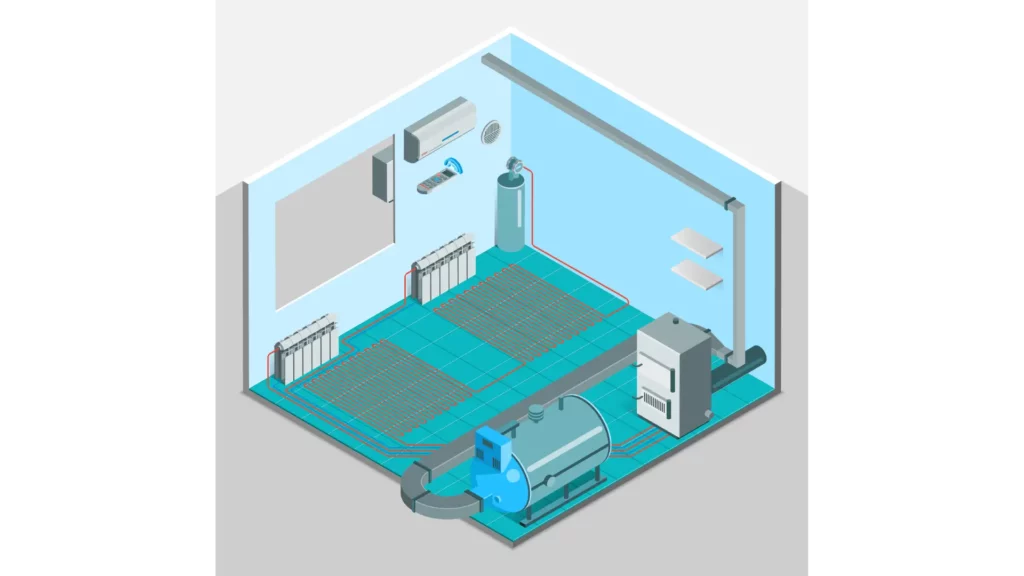
Key Features to Consider in an Energy Efficient Basement Heater
Selecting an energy efficient basement heater involves more than just choosing the right type. The following features are critical for maximizing efficiency and safety:
- Thermostats and Controls: Advanced thermostats and programmable controls allow for better temperature management, reducing power usage by avoiding unnecessary heating.
- Timer Functions: Timers help limit operation to periods when heating is actually needed, which can significantly reduce energy consumption.
- Energy Star Ratings: Products that earn the Energy Star label meet strict energy efficiency guidelines set by the U.S. Environmental Protection Agency.
- Safety Mechanisms: Features like overheat protection, automatic shut-off, and cool-to-the-touch surfaces are crucial for preventing accidents.
- Eco Mode: Many modern heaters feature an eco mode that optimizes energy use based on the current temperature, reducing electricity consumption without sacrificing comfort.
- Remote Control and Smart Features: The ability to control your heater remotely via a smartphone app or integrate it with home automation systems offers convenience and further enhances energy savings.
- Adjustable Louvers: These allow you to direct heat exactly where it's needed, which improves the efficiency of the heat distribution throughout your basement.
- Quiet Operation: Especially important in a home environment, heaters that operate quietly enhance comfort without being disruptive.

Optimizing Basement Heating with an Energy Efficient Heater for Basement
When it comes to maintaining a comfortable and warm basement environment, choosing the right energy efficient heater for basement use is essential. An energyefficient heater for basement settings not only provides the necessary warmth but also does so in a manner that conserves energy and reduces utility bills.
Such heaters are specifically designed to tackle the unique challenges of basement areas, such as higher humidity levels and cooler overall temperatures, ensuring that your basement remains a functional and cozy space throughout the colder months.
With the right model, you can enjoy a warm basement without the worry of excessive energy costs.
Exploring Types of Energy Efficient Basement Heaters
Selecting the right energy efficient basement heater hinges on your unique requirements, the physical layout of your basement, and your budget constraints.
Below, we detail the various types of heaters to help you make an informed decision that best suits your needs.
Electric Heaters: High Efficiency for Controlled Environments
Electric heaters are a popular choice for basement heating due to their high energy efficiency. They convert almost all the electricity they consume directly into heat, making them an excellent option for those looking to minimize energy wastage.
Panel Heaters
- Design: Slim, wall-mounted units.
- Function: Utilize a mix of convection and radiant heating to deliver consistent temperatures.
- Ideal Use: Great for spaces that are used regularly and require constant warmth.
Infrared Heaters
- Operation: Emit infrared light to heat objects and people directly, bypassing the air.
- Efficiency: Particularly effective in drafty areas as they minimize heat loss to the surrounding air.
- Benefits: Provide immediate warmth, making them suitable for quick heating needs.
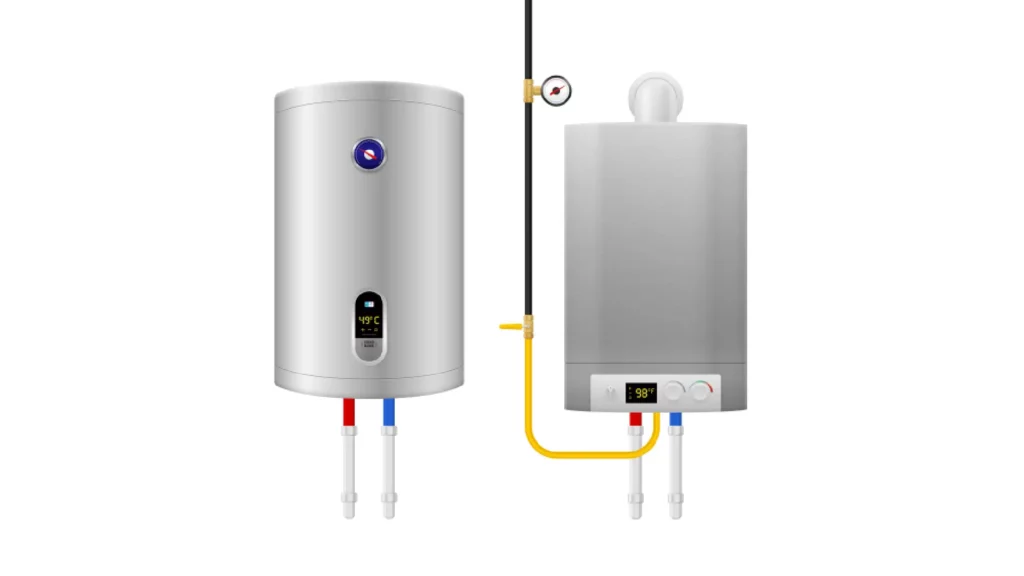
Gas Heaters: Cost-Effective and Powerful
For those where natural gas is a cheaper alternative, gas heaters offer a viable and economical heating solution. These units typically have lower operating costs than electric heaters but need careful installation to safely manage exhaust emissions.
Blue Flame Heaters
- Mechanism: Burn natural gas or propane to create a direct air-heating blue flame.
- Application: Best for heating larger basement spaces; require good ventilation to ensure safety.
Radiant Gas Heaters
- Similarity to Electric Models: Like electric infrared heaters, these emit radiation that directly warms people and objects.
- Quick Heating: They heat the space quickly and are efficient for targeted areas within larger spaces.
Heat Pumps: Ultimate Energy Efficiency
Heat pumps stand out as one of the most energy-efficient heating solutions available. Unlike traditional heating methods, they transfer heat from the outside into the basement rather than generating heat through fuel combustion.
- Cost Efficiency: Higher initial investment but significantly lower operational costs.
- Climate Suitability: Perform best in regions that do not experience extreme cold, making them a sustainable choice for moderate climates.
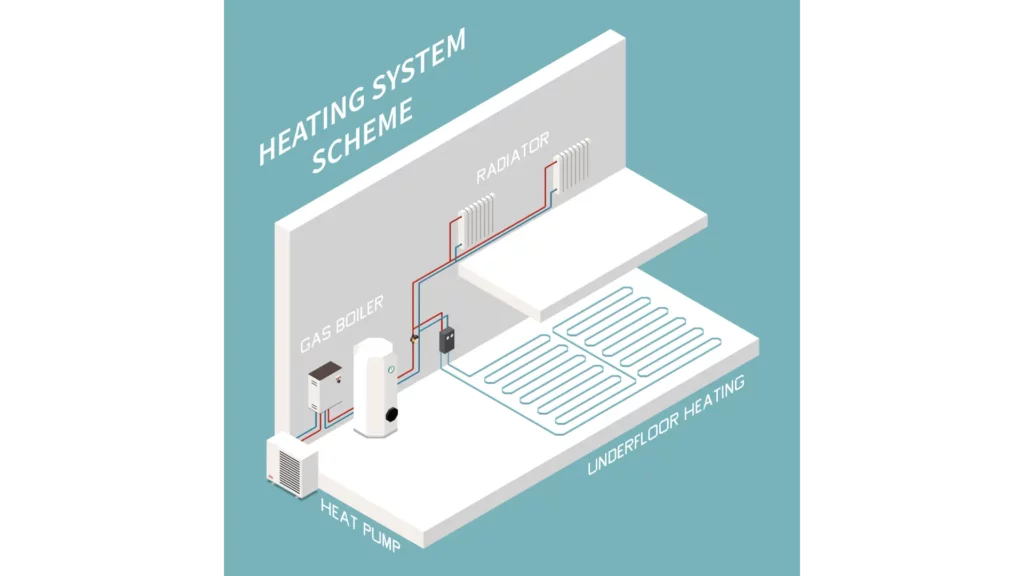
Choosing the Best Energy Efficient Space Heater for Your Basement
When it comes to heating a basement efficiently and effectively, selecting the right energy efficient space heater for basement use is essential. Here’s what to consider when looking for an energy efficient space heater for basement environments:
- Size and Capacity: It's crucial to choose a space heater with the appropriate heating capacity for your basement's size. A heater that's too small won't effectively warm the space, while one that's too large will use unnecessary energy.
- Energy Efficiency: Opt for models with high energy efficiency ratings. Features like programmable thermostats, energy-saving modes, and automatic timers help keep energy consumption to a minimum while still providing adequate heat.
- Safety Features: Basements are often used for storage and as recreational areas, so safety is paramount. Choose heaters with safety features such as tip-over switches, automatic shut-off mechanisms, and overheat protection to prevent accidents.
- Type of Heater: Infrared and ceramic heaters are typically the most efficient for basement settings. Infrared heaters are excellent for large, open spaces because they heat objects and people directly, thus heating more efficiently.
- Moisture Control: Considering the basement’s propensity for higher humidity levels, some space heaters come equipped with dehumidifying functions to help control moisture while heating the space, thereby improving overall air quality and comfort.
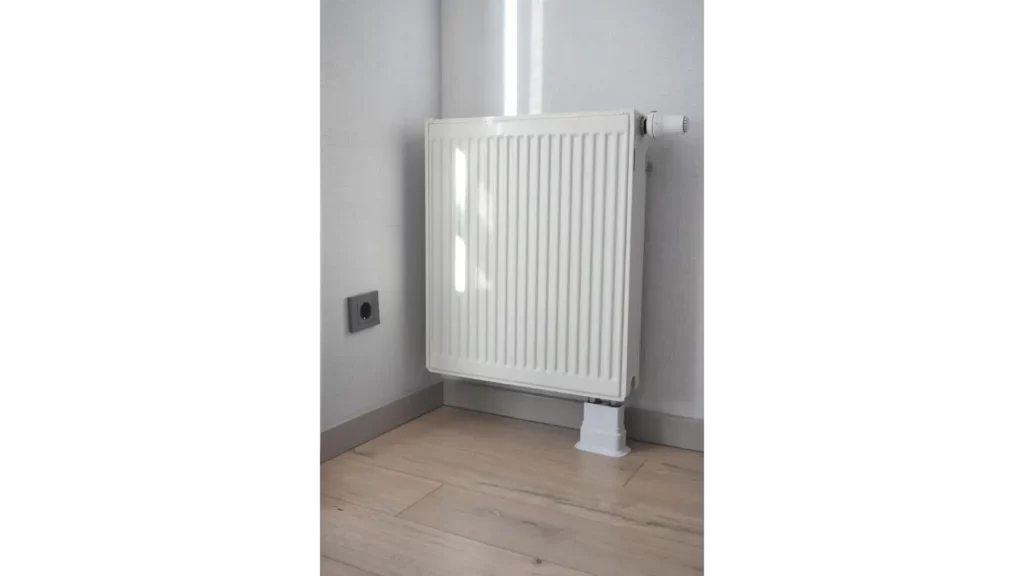
Installation and Maintenance Best Practices
Proper installation and diligent maintenance are crucial in maximizing the efficiency, safety, and longevity of your energy efficient basement heater.
These practices not only ensure optimal performance but also contribute to the overall energy savings and effectiveness of your heating system.
Effective Installation
The performance and safety of your energy efficient basement heater heavily depend on its installation.
It is highly recommended to engage certified professionals for the installation process.
Professional installers are trained to handle and install heaters according to the manufacturer's specifications and adhere to local building codes, which can vary significantly between regions.
- Choosing the Right Location: The location of your heater affects its performance and efficiency. Install the heater in a central location to facilitate even heat distribution throughout the basement.
- Consider Ventilation: For gas heaters, proper ventilation is crucial to avoid the build-up of harmful combustion byproducts. Ensure that your installation plan includes adequate venting solutions that comply with safety standards.
- Compliance with Electrical Standards: For electric heaters, ensure that your electrical system can handle the load requirements of the heater. Professional installation can help prevent electrical overloads, which are a common hazard with high-powered heating equipment.
Ongoing Maintenance
Regular maintenance is essential to keep your energy efficient basement heater running efficiently and safely. Here’s a detailed breakdown of key maintenance practices:
- Regular Cleaning: Dust and debris can accumulate in and around your heater, potentially obstructing airflow and reducing efficiency. Clean or replace any filters as recommended by the manufacturer.
- Inspect Ventilation Paths: For heaters that require venting, regularly check the vents for blockages, leaks, or corrosion. Obstructed or leaky vent systems can lead to dangerous accumulations of gas or inefficient heater operation.
- Check Electrical Connections: For electric heaters, inspect all electrical connections and cords for signs of wear or damage. A loose connection or frayed cord can pose a serious fire risk.
- Annual Inspections: Schedule an annual inspection with a qualified technician to ensure all components of your heater are functioning correctly. This should include checking the thermostat, safety controls, and all operational functions of the heater.
- Monitoring Performance: Be alert to changes in the performance of your heater. If it starts taking longer to heat the room, makes unusual noises, or stops working intermittently, these could be signs that a professional service check is needed.
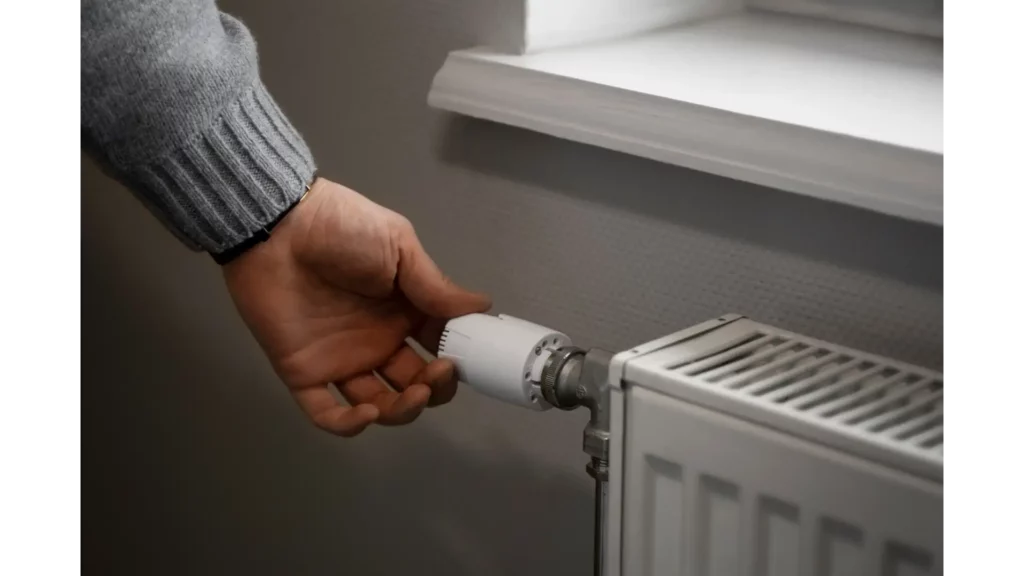
Frequently Asked Questions About Energy Efficient Basement Heaters
1. What is the most energy-efficient way to heat a basement?
The most energy-efficient way to heat a basement depends on various factors including the size of the space, existing insulation, and local climate. Generally, heat pumps, infrared heaters, and electric heaters with programmable thermostats and eco modes are considered highly efficient for basements.
2. How do I calculate the size of the heater I need for my basement?
To calculate the appropriate size, you need to determine the square footage of your basement. Generally, you'll need about 10 watts of heating power for every square foot of space if using electric heaters. For precise sizing, it's recommended to consult with a heating professional who can assess your specific needs and conditions.
3. Can energy efficient heaters also cool down a space?
Some energy efficient heaters, particularly heat pumps, can provide both heating and cooling. Heat pumps are capable of reversing their operation to cool down a space during warmer months, making them a versatile year-round solution.
4. Are energy efficient basement heaters safe to leave on overnight?
Yes, most modern energy efficient heaters designed for residential use are safe to leave on overnight, especially those equipped with safety features such as overheat protection and automatic shut-off. However, it's important to follow all manufacturer guidelines and safety practices.
5. What maintenance does an energy efficient basement heater require?
Maintenance requirements vary depending on the type of heater. Generally, it's important to regularly check and clean any filters, ensure vents are not obstructed, and inspect the unit for any signs of damage or wear. Consult your user manual for specific maintenance guidelines.
6. Will an energy efficient heater work in a very cold basement?
Energy efficient heaters are capable of working effectively in cold environments, but the efficiency can depend on the type of heater and how well-insulated your basement is. In extremely cold conditions, supplemental insulation might be necessary to achieve optimal performance.
7. How long do energy efficient heaters typically last?
The lifespan of an energy efficient heater can vary based on the model, usage, and maintenance. On average, you can expect a well-maintained heater to last between 10 to 20 years. Regular maintenance and careful use can extend the lifespan of the heater.
8. Are there any incentives for installing an energy efficient basement heater?
Many governments and utility companies offer rebates, tax credits, or other incentives for installing energy efficient heating solutions. It's advisable to check local programs in your area or consult with energy efficiency experts to take advantage of these offers.
9. How quickly can an energy efficient heater warm up a basement?
The time it takes to warm up a basement can vary based on the heater's capacity, the basement's size, insulation level, and the outside temperature. Some heaters, like infrared heaters, can warm up a space relatively quickly because they heat objects directly rather than the air.
10. Is it better to install a permanent or portable energy efficient heater in a basement?
The choice between a permanent and a portable heater depends on your specific needs. Permanent heaters are typically more powerful and can be a better option for consistently heating large spaces. Portable heaters offer flexibility to move the heat source as needed, which can be advantageous for smaller or segmented spaces.
Conclusion
Choosing the perfect energy efficient basement heater isn't just about warmth—it's about creating a cozy retreat while minimizing environmental impact and energy costs.
By understanding the unique challenges of basement spaces and prioritizing features like programmable thermostats and safety mechanisms, we can confidently invest in a heater that aligns with our values.
Let's make conscious choices that not only keep us warm but also contribute to a healthier planet and a brighter future for generations to come.

